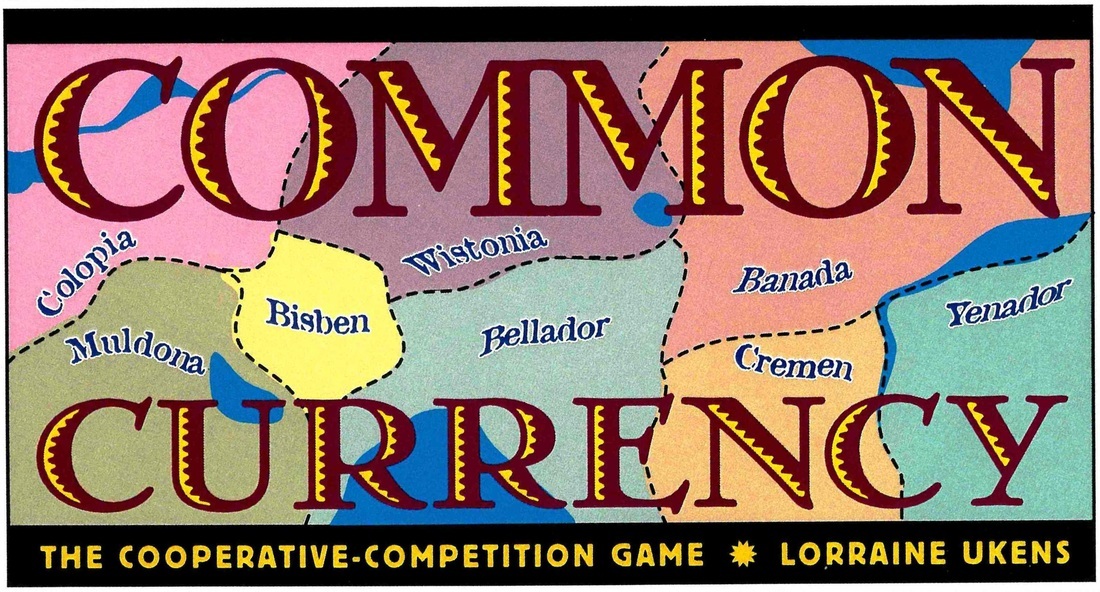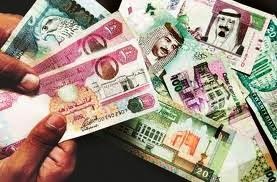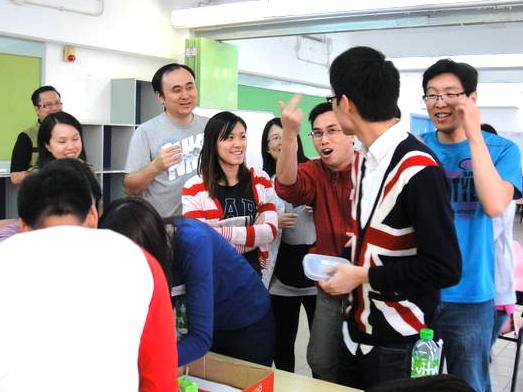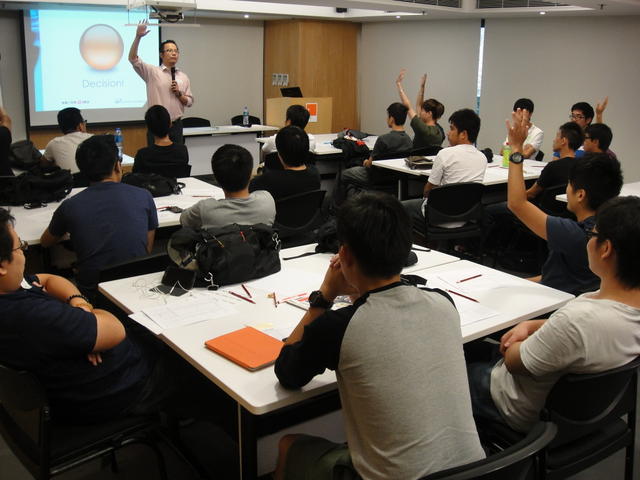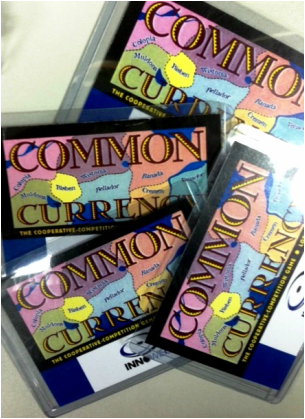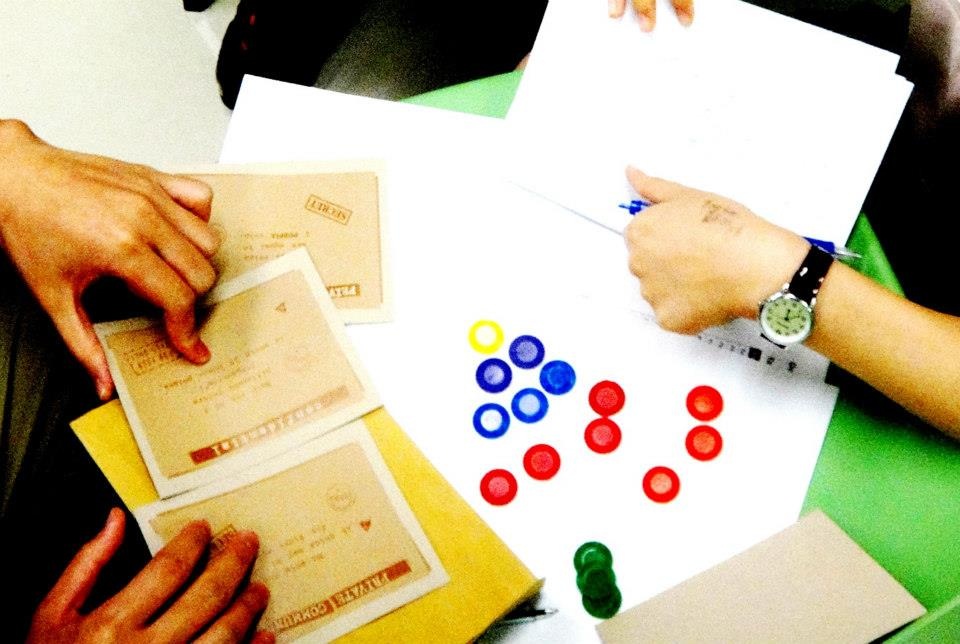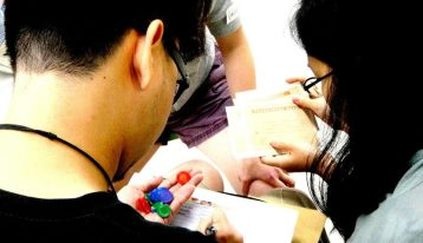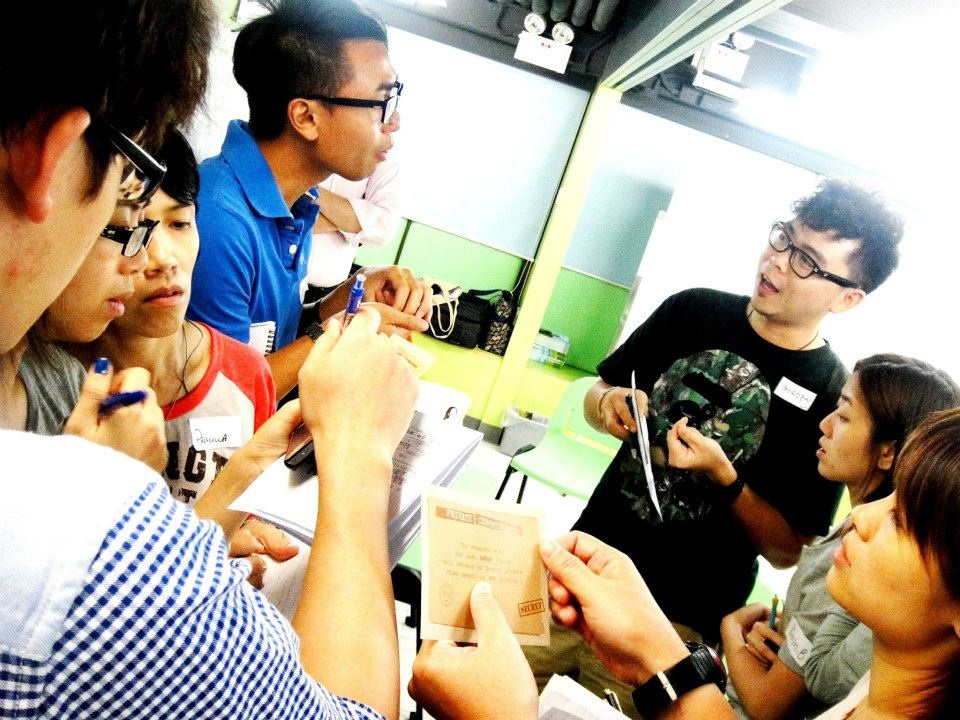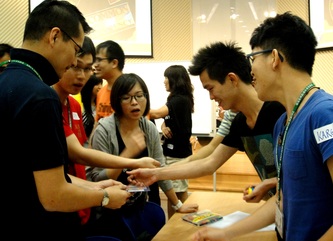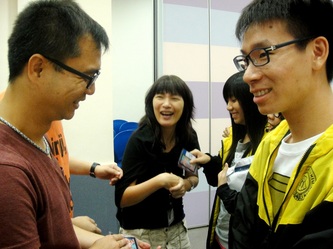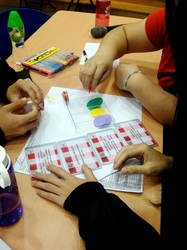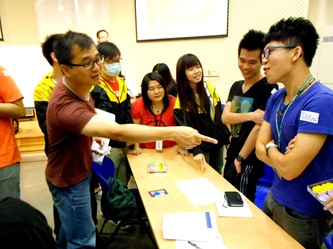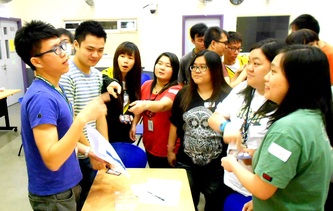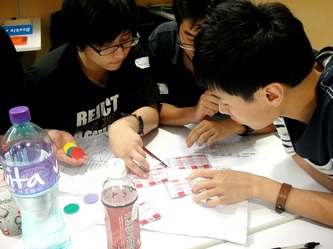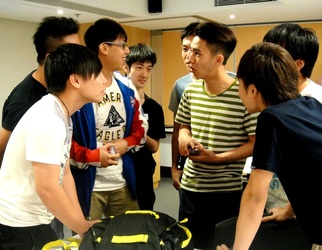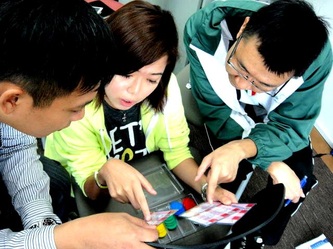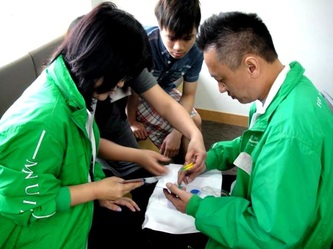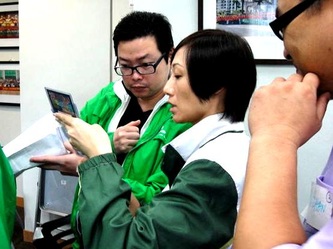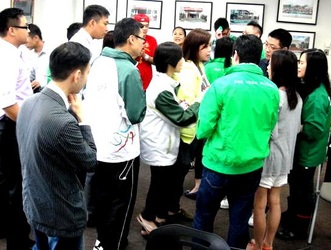Common Currency GameIs it really possible to practice the strategies of competition and cooperation at the same time? Yes! Around the world, production teams, research and development groups, and marketing teams all are benefiting from the power of cooperative-competition. Discover for yourself this fresh approach to individual, team, and organizational development with Common Currency: The Cooperative Competition Game.
Overview What is cooperative-competition? When teams act with a competitive spirit that motivates them to put forth their best efforts while cooperating on the achievement of similar goals, you’ve got cooperative-competition. And it can give your organization an edge over the competition. Common Currency uses the concept of cooperative-competition among teams to stress the importance of group interdependence. To win this game, each group must rely on collaboration with others to exchange information and resources. Thus, teams gain an understanding of the beneficial nature of competitiveness as they strive to do their best, while maintaining good working relationships with other groups. All group interactions involve both task (outcome) and relationship (process) skills. Common Currency is an excellent tool to address all aspects of teamwork and strategic planning, including leadership development, open communication, conflict resolution, principled negotiation, problem solving, managing change, and decision making. How the game works Teams representing fictional countries must cooperate in trading coins and information while competing for the most valuable combination of coins. Participants will:
Change Variation Game The concept of change and how it affects the process of cooperative competition can be illustrated clearly with this variation. The basic game instructions remain the same; however, teams must deal with changes in some of the original information. The new Information Cards affect coin combinations, bonus points, and the total number of coins allowed in the final collection. At this time, the change variation is included with the basic Common Currency game at no charge. When to use Common Currency This game is a flexible, team-based activity that utilizes a wealth of interpersonal and group-process skills. We especially like using it as part of negotiating and strategic planning workshops. But it’s ideal for a wide array of training topics. The Facilitator Guide includes debriefs for training in team building, communication, negotiating, strategic planning, decision making, problem solving, resource sharing, and more. Also included is a separate change module, which demonstrates the value of cooperative-competition in times of change. Development of the Game The idea for Common Currency came about as the author was exploring the effects of competition on team building. She discovered that very few people were aware of the beneficial nature of competition within a collaborative environment, so she decided to create a game that would demonstrate those benefits. The challenge was to create a game that utilized the spirit of cooperative competition while remaining flexible enough to meet a variety of training needs. The most important issue during development was the use of limited resources to create a heightened sense of competition, while utilizing a process that would require teams to collaborate with each other. This was accomplished in two ways: first, by providing an unequal distribution of coins, with a decreasing amount of coins as the values increased; and second, by formulating several data "bits" about the coins in the form of Information Cards, which players would need to access to determine game strategies. The cards were made in duplicate to incorporate the risk of negotiating for information that was already known. To further limit these resources, the coins and cards were to be randomly distributed in small portions to each participating group. Therefore, teams would have diverse assortments of coin values and pieces of information. In an attempt to gain the most valuable coin collection, participants would need to cooperate within their own team as well as negotiate with other groups for information and coins. The resulting interactions would establish the basis for the debriefing topics. |
Introducing the Scenario VARIATION WITH CHANGE
|
Teamwork
Game Note
In evaluating the quality of teamwork, it is important to look at such things as increased productivity, a sense of belonging, commitment to team goals, mutual support, and interdependence of members within the team. To that end, all members of the team should have contributed in some way during the game. Roles and responsibilities generally should have been divided according to the strengths and expertise of the individual team members. For example, someone with strong math skills might be in charge of the data analysis, while a calm negotiator would handle making deals with other groups. Teams may have developed different group dynamics depending on the diverse mix of skills, personalities, and behavioral approaches. What did and didn't work in the group process should be tied to the final outcome of each team.
In evaluating the quality of teamwork, it is important to look at such things as increased productivity, a sense of belonging, commitment to team goals, mutual support, and interdependence of members within the team. To that end, all members of the team should have contributed in some way during the game. Roles and responsibilities generally should have been divided according to the strengths and expertise of the individual team members. For example, someone with strong math skills might be in charge of the data analysis, while a calm negotiator would handle making deals with other groups. Teams may have developed different group dynamics depending on the diverse mix of skills, personalities, and behavioral approaches. What did and didn't work in the group process should be tied to the final outcome of each team.
Strategic Planning
Game Note
Initially, the team's strategy will have been based on sketchy information and most likely focused on an approach to negotiations. Some teams may have decided to "play it safe" by limiting their exchanges while other groups were more willing to gamble on risker sets to gain bonus points. The inability to obtain needed information, receipt of unclear or inaccurate data, and breakdowns in team communication will have had a negative influence on team strategies. As new data were obtained, or gaps in information were encountered, changes in both goals and strategies will have occurred. How well these changes were communicated within the team, and consequently implemented, would impact the final score.
Initially, the team's strategy will have been based on sketchy information and most likely focused on an approach to negotiations. Some teams may have decided to "play it safe" by limiting their exchanges while other groups were more willing to gamble on risker sets to gain bonus points. The inability to obtain needed information, receipt of unclear or inaccurate data, and breakdowns in team communication will have had a negative influence on team strategies. As new data were obtained, or gaps in information were encountered, changes in both goals and strategies will have occurred. How well these changes were communicated within the team, and consequently implemented, would impact the final score.
Leadership
Game Note
It is not always necessary to establish a formal leader for a team to succeed in this game. However, the larger the team the more important it will be to have a central figure to coordinate efforts. Leadership should have been shared among team members as the emphasis shifted from one aspect of the game to another. For example, shared responsibilities for goal setting and decision making may have helped team members gain commitment to the group’s endeavors.
It is not always necessary to establish a formal leader for a team to succeed in this game. However, the larger the team the more important it will be to have a central figure to coordinate efforts. Leadership should have been shared among team members as the emphasis shifted from one aspect of the game to another. For example, shared responsibilities for goal setting and decision making may have helped team members gain commitment to the group’s endeavors.
Communication
Game Note
Open and clear communication should have been a mainstay throughout the activity. Clear communication of the team’s goals, strategies, and decisions are necessary to guide the group efforts and the final outcome. Any changes in the initial approach needed to be communicated to all members of the team or their efforts would have been at odds. To ensure that accurate information was received during negotiations, it would have been necessary to use active listening skills and precise data transmission. Collaborative relationships could have been affected by communication style and accuracy as well as body language. If the communication process was faulty or inadequate, conflicts may have arisen as a result.
Open and clear communication should have been a mainstay throughout the activity. Clear communication of the team’s goals, strategies, and decisions are necessary to guide the group efforts and the final outcome. Any changes in the initial approach needed to be communicated to all members of the team or their efforts would have been at odds. To ensure that accurate information was received during negotiations, it would have been necessary to use active listening skills and precise data transmission. Collaborative relationships could have been affected by communication style and accuracy as well as body language. If the communication process was faulty or inadequate, conflicts may have arisen as a result.
Conflict Resolution
Game Note
During the activities, conflicts may have arisen within the team or with individuals from other groups. These disputes could have resulted from misunderstandings, failed negotiations, controversial decisions, dominating personalities, and unequal participation, to name a few. The extent of the conflict and how well the situation was resolved may have affected the final outcome as well as overall group dynamics. Because competition often leads to conflict, it is here that collaboration is most critical for establishing a harmonious relationship.
During the activities, conflicts may have arisen within the team or with individuals from other groups. These disputes could have resulted from misunderstandings, failed negotiations, controversial decisions, dominating personalities, and unequal participation, to name a few. The extent of the conflict and how well the situation was resolved may have affected the final outcome as well as overall group dynamics. Because competition often leads to conflict, it is here that collaboration is most critical for establishing a harmonious relationship.
Negotiation
Game Note
A number of negotiation behaviors during the game play may be reported by teams. Certain team members may have been designated to act as negotiators, or all members of the team may have participated in negotiations. The process may have in negotiations. The process may have involved a single individual from each team communicating together or a group of players conducting negotiations. Teams should have explored mutual interests and focused on ethical agreements. A criticall component of the negotiation process will have been the ability of players to trust that the information they received from other groups was true.
A number of negotiation behaviors during the game play may be reported by teams. Certain team members may have been designated to act as negotiators, or all members of the team may have participated in negotiations. The process may have in negotiations. The process may have involved a single individual from each team communicating together or a group of players conducting negotiations. Teams should have explored mutual interests and focused on ethical agreements. A criticall component of the negotiation process will have been the ability of players to trust that the information they received from other groups was true.
Goal Setting
Game Note
In this game each team should have a predetermined goal that is understood by all members. The overall goal directly affects the group's strategic plan. However, team goals may have shifted along the way for several reasons: new information, unsuccessful negotiations, and / or time pressures as the deadline neared. It is important that team members be involved in any decision to alter a goal, that the changes be clearly communicated to all, and that the resulting strategic plan reflect the new goal.
In this game each team should have a predetermined goal that is understood by all members. The overall goal directly affects the group's strategic plan. However, team goals may have shifted along the way for several reasons: new information, unsuccessful negotiations, and / or time pressures as the deadline neared. It is important that team members be involved in any decision to alter a goal, that the changes be clearly communicated to all, and that the resulting strategic plan reflect the new goal.
Resource Sharing
Game Note
All teams were presented with limited resources in the form of coins and information. In addition, these resources were unequal because the coins varied in worth and some Information Cards were more informative than others. Teams had to depend on one another to exchange information or they could not complete the activity effectively. In order to be competitive, teams had to gain as much information as possible to determine the coin values and exchange the coins to make the most valuable collection. At the same time, it was important to maintain a collaborative relationship with other groups by building trust through honest communication.
All teams were presented with limited resources in the form of coins and information. In addition, these resources were unequal because the coins varied in worth and some Information Cards were more informative than others. Teams had to depend on one another to exchange information or they could not complete the activity effectively. In order to be competitive, teams had to gain as much information as possible to determine the coin values and exchange the coins to make the most valuable collection. At the same time, it was important to maintain a collaborative relationship with other groups by building trust through honest communication.
Problem Solving
Game Note
Data analysis and problem solving are important components of the activity. It was necessary to combine various pieces of information to determine the values of the coins and their corresponding “sets”. The initial information was scarce at the outset, and some plans needed to be made using sketchy details. It was important to gather as much information from other teams as possible. Data should have been recorded then updated as new information became available. The kind of information acquired and how well it was interpreted will have influenced the final outcome.
Data analysis and problem solving are important components of the activity. It was necessary to combine various pieces of information to determine the values of the coins and their corresponding “sets”. The initial information was scarce at the outset, and some plans needed to be made using sketchy details. It was important to gather as much information from other teams as possible. Data should have been recorded then updated as new information became available. The kind of information acquired and how well it was interpreted will have influenced the final outcome.
Decision Making
Game Note
The decision-making aspects of the activity are closely tied to how much information was received, how well it was analyzed during the problem-solving process, and its overall accuracy. The teams had to make basic decisions on which goals to pursue and whether or not coins should be traded. The process used to make decisions within each team may have impacted the group's success. Whether decisions involved the entire team or only individuals could have affected such things as the use of time, team climate, relationships, group acceptance of the decision, or even the quality of the decision.
The decision-making aspects of the activity are closely tied to how much information was received, how well it was analyzed during the problem-solving process, and its overall accuracy. The teams had to make basic decisions on which goals to pursue and whether or not coins should be traded. The process used to make decisions within each team may have impacted the group's success. Whether decisions involved the entire team or only individuals could have affected such things as the use of time, team climate, relationships, group acceptance of the decision, or even the quality of the decision.
Managing Change
Game Note
When the change was introduced, many players may have felt frustrated, even angry. Because the changes did not affect each team equally, such feelings may have been more pronounced in some groups. This could have had an effect on how well teams adjusted their strategies and on their collaborations with other groups. Teams should have observed who received new cards so that they could approach them to negotiate for new information. It is most likely that team strategies and goals needed some adjustment because enough of the rules changed. How quickly and effectively the change was incorporated would have influenced both relationship processes and task outcomes.
When the change was introduced, many players may have felt frustrated, even angry. Because the changes did not affect each team equally, such feelings may have been more pronounced in some groups. This could have had an effect on how well teams adjusted their strategies and on their collaborations with other groups. Teams should have observed who received new cards so that they could approach them to negotiate for new information. It is most likely that team strategies and goals needed some adjustment because enough of the rules changed. How quickly and effectively the change was incorporated would have influenced both relationship processes and task outcomes.
